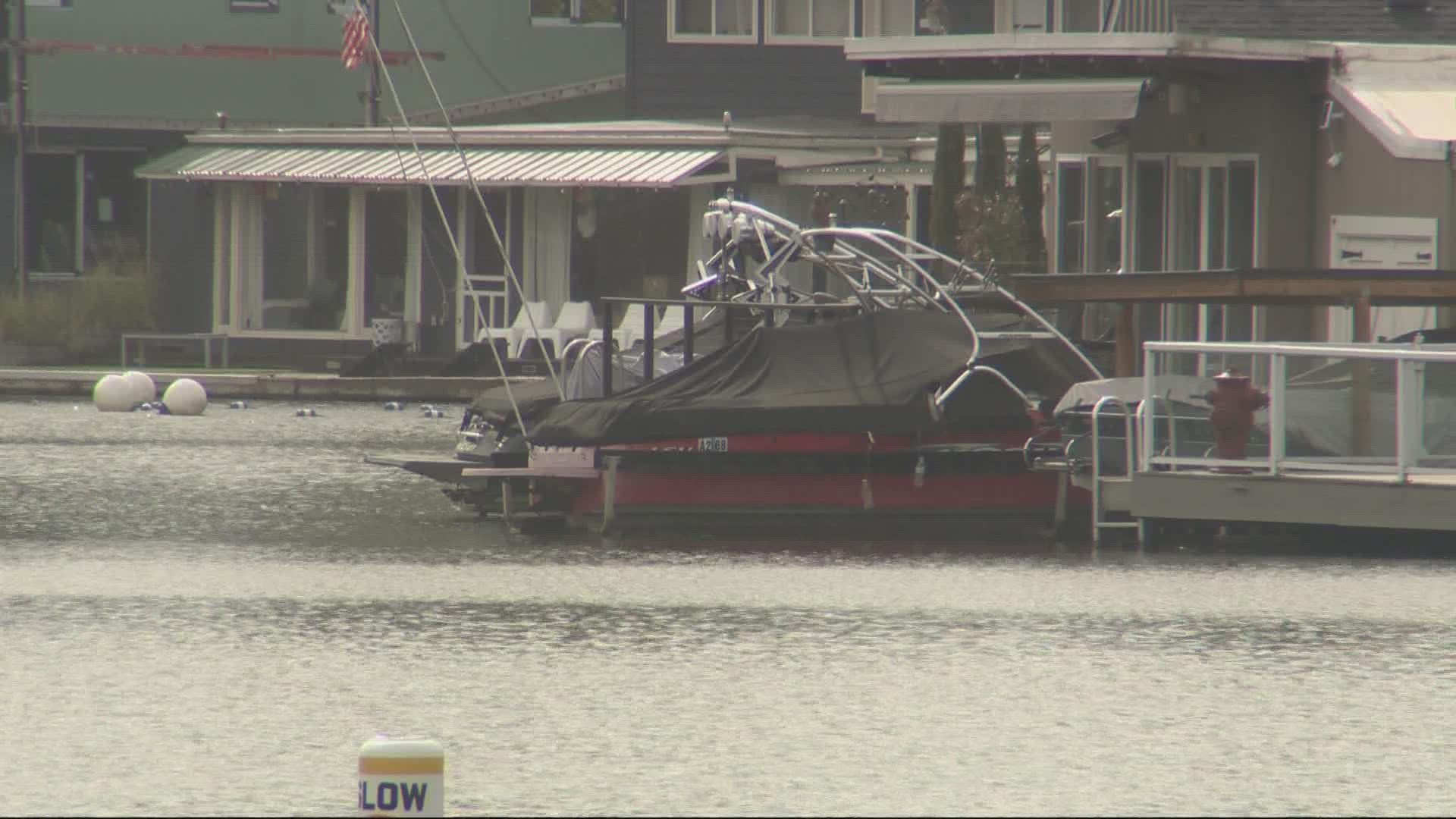LAKE OSWEGO, Ore. — Oregon's public trust doctrine applies to Oswego Lake, and the public therefore has a right to access the lake through public parks, Clackamas County Circuit Court Judge Ann Lininger ruled on Tuesday.
The ruling is a sharp reversal in a lawsuit that has been working its way through the court system for more than a decade.
The City of Lake Oswego passed an ordinance in 2012 prohibiting public access to Oswego Lake, the lake at the center of the city, through two public parks in the downtown area: Millennium Plaza Park and Sundeleaf Plaza.
Nearly all of the rest of the land around the perimeter of the lake is private residential property.
Plaintiffs Mark Kramer and Todd Prager filed a lawsuit challenging the ordinance, arguing that under Oregon's public trust doctrine, all navigable waterways that existed at the time of Oregon's statehood are state-owned and come with a right of public access.
The Lake Corporation, which manages the lake and is owned by the waterfront homeowners, joined the lawsuit as a co-defendant along with the city and the State of Oregon.
The central dispute in the case is about whether Oswego Lake qualifies as a navigable body of water that would be subject to the public trust doctrine.
The lake is naturally-occurring and was known as Sucker Lake at the time that Oregon gained statehood, but it was later artificially raised and expanded through the addition of a dam at its eastern end.
As summarized in Lininger's opinion, the plaintiffs argued that the entire current lake is subject to the public trust doctrine, and that the city therefore can't legally block access through public property like the parks.
The state's position was that it owns the original lake, but not the expanded portion, and that there is no public right of access through the city parks.
The Lake Corporation's position is that there is no right of public access because none of the lake is subject to the public trust doctrine.
The city joined the corporation's position "to the extent that it seeks denial and dismissal of Plaintiff's claims," Lininger wrote.
The city has also argued that allowing public access through the parks would create safety and liability risks because those spaces weren't designed with lake ingress and egress in mind, as reported by the Portland Tribune.
The plaintiffs lost in Clackamas County Circuit Court and in the Oregon Court of Appeals, but they appealed to the Oregon Supreme Court, and in 2019 the Court declined to rule on the central issue, instead sending the case back to the Circuit Court to be re-evaluated.
Lininger's ruling concludes that Sucker Lake was navigable at statehood, and Oregon therefore owns the lakebed up to the original high-water mark, and the public trust doctrine applies to all land and water up to that mark.
The plaintiffs have not established that the state owns the land beneath the expanded portion of the lake, Lininger ruled, but all the waters of the expanded lake are subject to the public trust doctrine.
"Oswego Lake's partial title-navigability, the public trust status of its waters, and the specific circumstances here create a public right of access to the lake from the City's public waterfront parks," she wrote.
Any city or state interference with the public right of access must be "objectively reasonable" given the purpose of the public trust doctrine and the specific circumstances, according to the ruling.
A second phase of the case, scheduled for July, will evaluate whether the city's original access prohibition ordinance and related policies constitute unreasonable interference with the public right of access.
In a statement on Thursday, the City of Lake Oswego said it did not take a position on the public trust doctrine, but reiterated its stance that allowing public lake access through the parks would be unsafe and create liability issues. It also said the prohibition ordinance would remain in effect until a final ruling in the case is determined.

